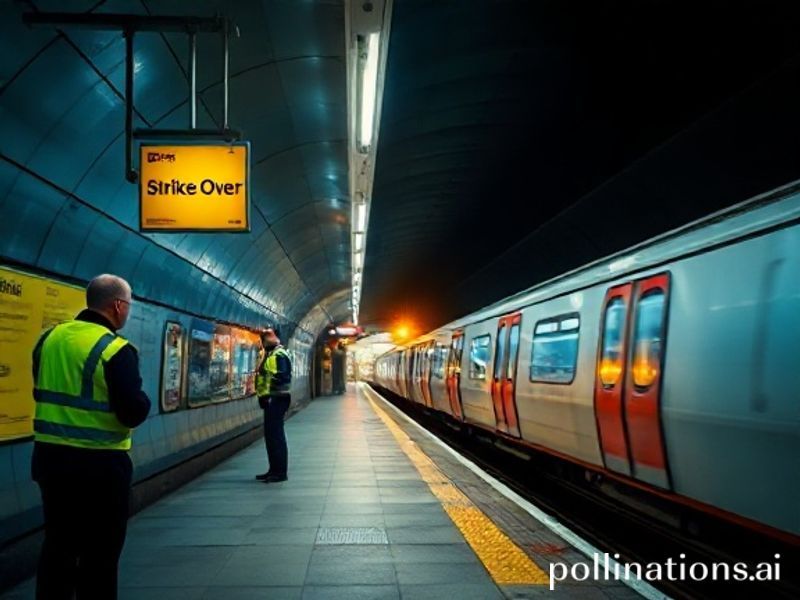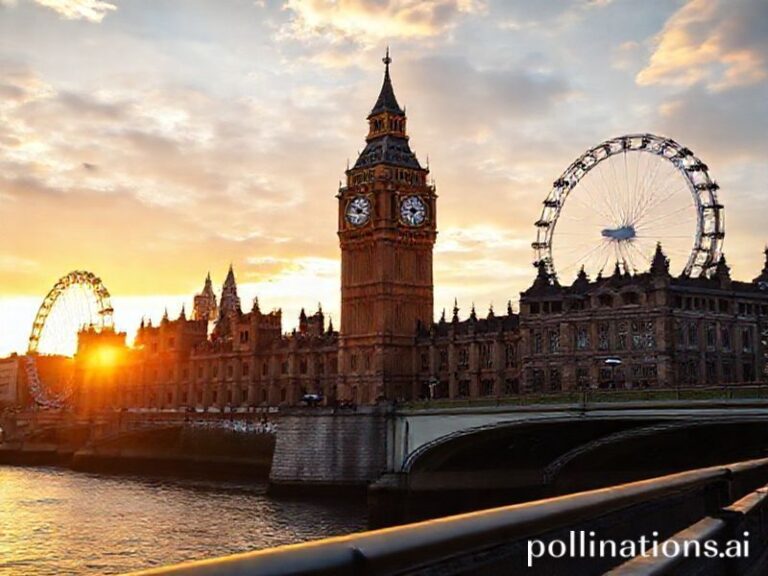Global Gridlock: Why London’s Tube Strikes Never Truly End (and How They Screw Your Breakfast Bagel in Brussels)
When Do Tube Strikes End? A Dispatch From the Liminal Underworld
By Our Correspondent, fresh off the District line and still tasting the metallic regret of instant coffee number four
LONDON—Somewhere between the stale croissant fumes of King’s Cross and the existential dread of a Monday 7:12 a.m. platform announcement, the question arises: when, exactly, do Tube strikes end? The short answer is “never soon enough.” The longer, more cosmopolitan answer involves French rail unions on a sympathy bender, Tokyo salarymen politely tutting at the very idea, and New Yorkers wondering why Londoners don’t just Uber everywhere like civilised people who enjoy gridlock.
Globally, transport strikes are the geopolitical equivalent of a toddler’s tantrum in a duty-free shop: loud, inconvenient, and somehow always about money someone else claims not to have. London’s latest episode—brought to you by the RMT union, Network Rail, and the slow-motion collapse of public-sector pay—has turned the capital’s circulatory system into a Victorian plumbing diagram. But the ripple effects travel farther than a discarded Metro on the 5:42 to Gatwick.
Consider the Parisian commuter who misses her Eurostar connection because the Northern line decided that “severe delays” is Latin for “today.” She lands in Brussels too late to sign off on the EU’s latest sanctions package, which means a shipment of Belarusian fertiliser slips through, which means a spike in global wheat futures, which means your breakfast bagel tomorrow costs an extra 12p and somehow still tastes like despair. All because Bob the signal operator wants a real-terms raise. International butterfly effect, sponsored by Transport for London.
Meanwhile in Singapore, ministers watch the chaos with the mild curiosity of surgeons observing a street fight. Their MRT runs like a quartz watch because collective bargaining is politely discouraged and chewing gum is contraband. They file the footage under “cautionary tale” next to Brexit and the American healthcare system. Over in Delhi, the metro authority sends a brisk WhatsApp to staff: “Reminder—strikes are illegal under Essential Services Act. Also free chai at 3.” Problem solved, or at least postponed until the monsoon.
Back underground, the strike’s official end date is announced, rescinded, re-announced with footnotes, and finally tweeted in ALL CAPS by a spokesperson whose profile picture is a dog in a hi-vis vest. Commuters react the way hostages do when the ransom is paid in counterfeit euros: tentative euphoria followed by deep suspicion. By Thursday the trains are moving again, though “moving” is relative; the Central line still smells like damp carpet and broken dreams, and someone’s abandoned Pret baguette has achieved sentience.
Yet the broader significance lingers. Each Tube strike is an annual reminder that the Industrial Revolution never really ended; it just moved underground and unionised. The same class grievances that powered the Luddites now power the iPhone-toting platform staff demanding work-life balance. Marx would be amused, if he could get signal in the tunnels.
And so the world spins on, its arteries occasionally clogged by the human heart’s insistence on fair pension contributions. Supply chains hiccup, Zoom shares tick up, and somewhere a hedge-fund algorithm profits from volatility caused by a 54-year-old tube driver named Keith who just wanted weekends off. Capitalism, like the Circle line, always completes its loop.
When do Tube strikes end? They don’t, not really. They simply mutate into the next grievance, the next press conference, the next round of “regrettably, services remain disrupted.” In the meantime, the planet keeps commuting, grumbling, and overcharging for bottled water. The strike is over when we forget it happened—usually around the first signal failure of the following week.







